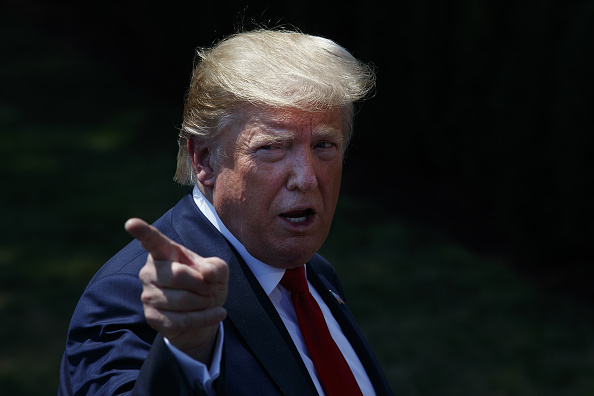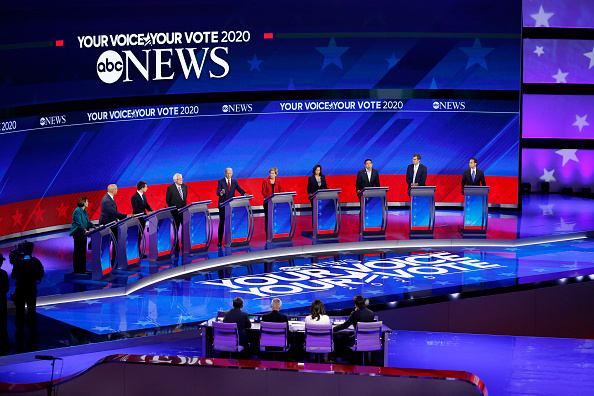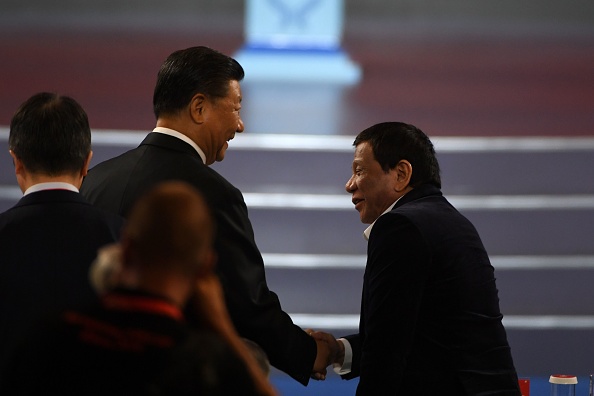
 Olive Branch or Olive Twig?
Olive Branch or Olive Twig?Trade war tensions eased off this week, with both China and the United States making concessions on tariffs and trade of goods. China is expected to resume its purchasing of agricultural products, including soybeans and pork, without penalties; and President Trump said that the next round of U.S. tariff hikes will be delayed two weeks until October 15th. Negotiators will next meet in early October, and the mutual concessions should deescalate the trade war that has brought the bilateral relationship to its lowest point in decades.
While markets heaved a sigh of relief at the new trade war concessions, the calm is not certain to remain. China is still leaving the door open for an alternate deal with Argentina over soybeans, a main wager in the trade war. According to Argentina's Agriculture Ministry, China will begin to allow imports of the South American country's soybean feed after two decades of Chinese-Argentinian negotiations over the commodity, a sign that China may be pivoting away from US agriculture and diversifying its imports.
American farmers, a critical constituency for President Trump's reelection campaign in 2020, have been hit particularly hard by the trade war, and while China has yet to confirm a new trade pact with Buenos Aires, China may deal a fresh blow to US soy farmers.
 Democrats Talk China
Democrats Talk ChinaChina received notable airtime in yesterday's third round of Democratic debates, with presidential hopefuls lambasting President Trump's strategy towards China. Candidates did not mince words, calling the trade war "erratic" and "haphazard", and criticizing the president for "[conducting] trade policy by tweet, frankly born out of his fragile ego," as Kamala Harris said. They argued that Trump's trade war is hurting U.S. consumers and "pummeling producers and farmers in Iowa who have absolutely nothing to do with the imbalances that we have with China," according to Andrew Yang. Senator Amy Klobuchar also called attention to a recent report by Moody's that the trade war has cost the U.S. almost 300,000 jobs.
While candidates came down hard on Trump's China tariffs, none said they would immediately lift tariffs if elected. Instead, they generally agreed that the U.S. needs to engage in deep negotiations with China to address a range of issues, with Mayor Pete Buttigieg saying his strategy would "include the tariffs as leverage." Some candidates also pledged to hold China accountable on the issue of human rights, with Buttigieg expressing support for the Hong Kong protestors and Former Secretary of Housing and Urban Development Julián Castro condemning China for its treatment of Uighurs.
Some analysts say that China is attempting to wait until after the 2020 elections to strike a trade deal with Washington, in hopes that a less-antagonistic negotiator will replace the current president. Supporting this view is the fact that 71% of Democratic voters oppose the tariffs, according to new research by the Chicago Council on Global Affairs, while 72% of Republicans support them.
 Reaching across the South China Sea
Reaching across the South China SeaPhilippine President Rodrigo Duterte claims that President Xi Jinping has offered him a controlling stake in a joint energy deal in return for ignoring an international arbitration on the South China Sea that went in favor of the Philippines against Beijing. The Hague tribunal ruled in 2016 that China has no basis for claiming its right to a majority of the South China Sea.
Duterte says that Xi told him to forget the ruling, and in exchange, Beijing would become the junior partner in a joint venture to develop gas deposits. China's state media quoted Xi as saying "as long as the two sides handle the South China Sea issue properly, the atmosphere of bilateral ties will be sound, the foundation of the relationship will be stable, and regional peace and stability will have an important guarantee."
Amid what seems to be warming China-Philippine relations, the US Navy sailed a guided-missile destroyer past the Paracel Islands in the South China Sea on Friday, challenging China's territorial claims in the region. A longtime security ally to the Philippines, Washington challenges "China's 1996 declaration of straight baselines encompassing the Paracel Islands," which has long aroused ire in Beijing.
Prepared by China-US Focus editorial teams in Hong Kong and New York, this weekly newsletter offers you snap shots of latest trends and developments emerging from China every week, while adding a dose of historical perspective.
- 2019-09-07 The Unwinnable War?
- 2019-08-31 “Sorry, it’s the way I negotiate”
- 2019-08-23 Tit for Tat
- 2019-08-17 Slowdown Ahead?
- 2019-08-09 Yuan on the Rocks
- 2019-08-02 Ratcheting Up the Crisis
- 2019-07-26 Playing Defense
- 2019-07-19 “Stain of the Century”
- 2019-07-12 Whichever Way the Wind Blows
- 2019-07-04 A Gentlemen’s Agreement
- 2019-06-28 A Truce on the Horizon?
- 2019-06-22 Three’s A Crowd
- 2019-06-14 Battle for Hong Kong
- 2019-06-07 Panda Diplomacy
- 2019-05-31 Trade Diversions
- 2019-05-25 Farm Aid or Band Aid?
- 2019-05-17 Risky Business
- 2019-05-10 Two Steps Forward, Two Steps Back
- 2019-05-03 The Final Laps?
- 2019-04-26 The Great Turbine Caper?
